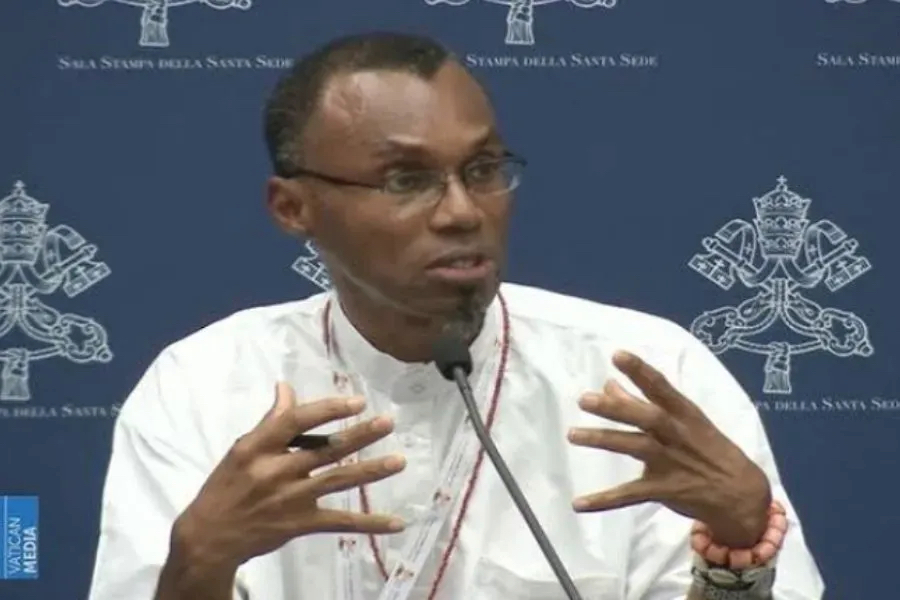The ecological crisis is “a self-inflicted calamity” and a “radical conversion” is needed to hear the cry of the poor and the cry of the earth, the annual St Patrick’s College Maynooth Trócaire Lenten Lecture was told last week.
In his talk, “Climate Justice and Catholic Social Teaching: Everything is connected…No one is saved alone”, Fr Agbonkhianmeghe Orobator SJ told the assembled bishops, clergy, Religious and laity that it is clear that climate change affects people and communities unequally and that those who carry the heaviest burden for climate change bear the least responsibility.
He challenged climate deniers asking, “who but the truly mad can doubt the human origin of climate change,” and added, “The stridency of naysayers and deniers cannot spin the stark facts.”
The former president of the Jesuit Conference of Africa and Madagascar said that “against the backdrop of the catastrophic consequences of unrestrained power to use and misuse the gift of creation, the prophetic voice of Pope Francis rings loud and clear: everything is connected and no one is saved alone.”
Calling for “ecological ubuntu”, based on the traditional African philosophy stressing the interconnectedness of humanity, Fr Orobator, who is Dean of the Jesuit School of Theology of Santa Clara University, explained that this proposed “a moral universe with interdependence”, mutuality, and relationality among people, institutions and nations, but also accountability towards nature at local and at global levels.
The objective of “ecological ubuntu” is to correct what John Paul II criticised as an anthropological error in Centesimus Annus, and Francis denounced as misguided anthropocentrism in Laudato Si.

“These two fallacies, I contend conflate into a formidable technocratic paradigm that gives the impression, as Francis says, ‘of a human being with no limits, whose abilities and capabilities can be infinitely expanded, thanks to technology and the economy’.”
Identifying specific principles from Catholic Social Teaching that deepen and strengthen the “moral scaffolding of climate justice”, Fr Orobator said the first principle is the preference for love of the poor. The second principle is the paramountcy of the common good and the third is the urgency of solidarity.



 Loading ...
Loading ...